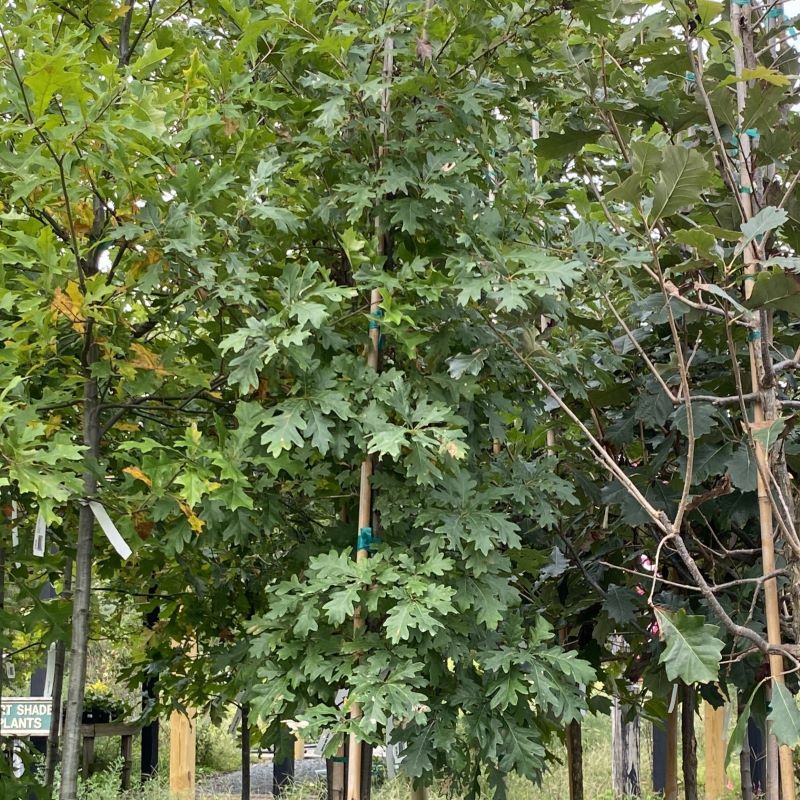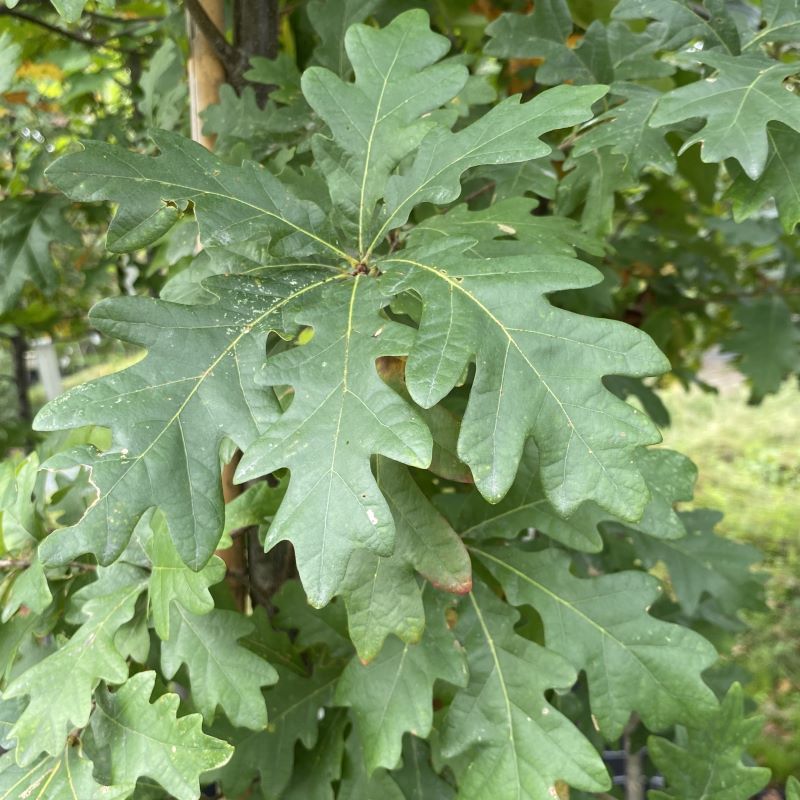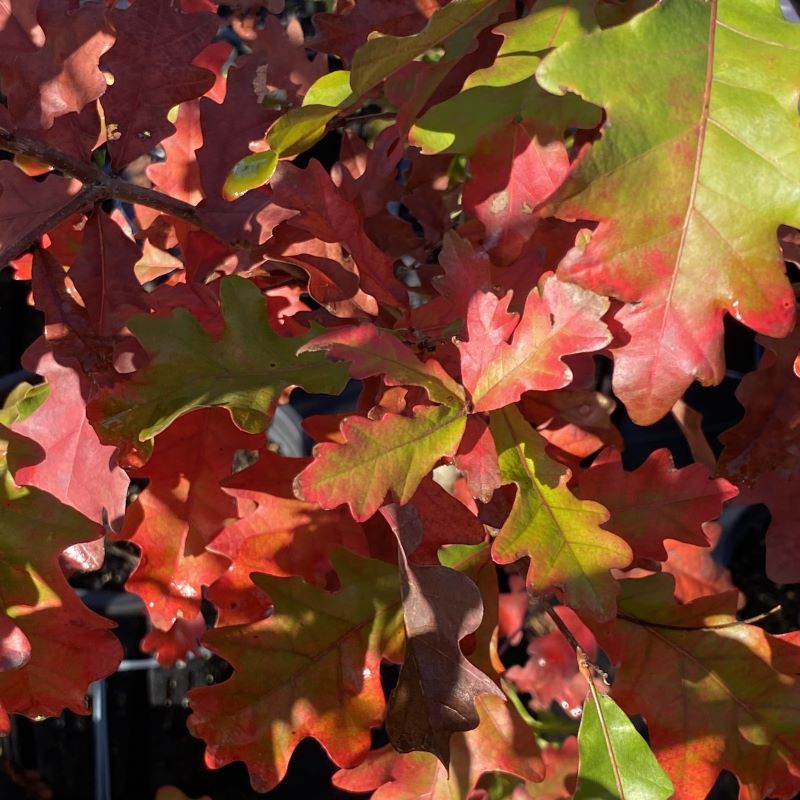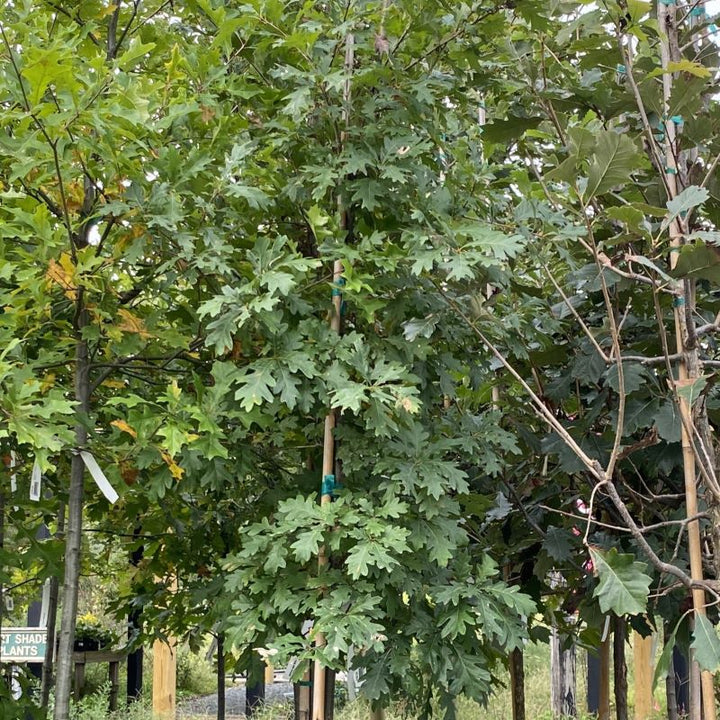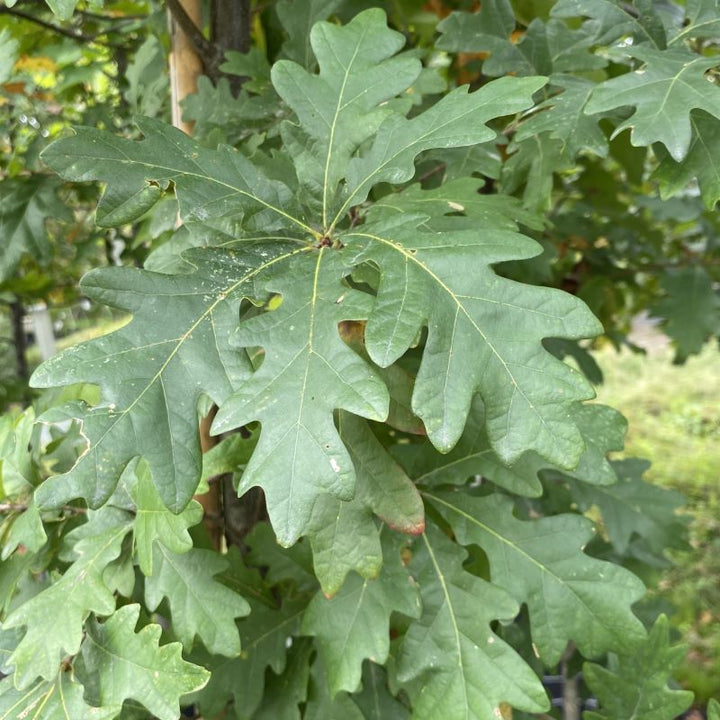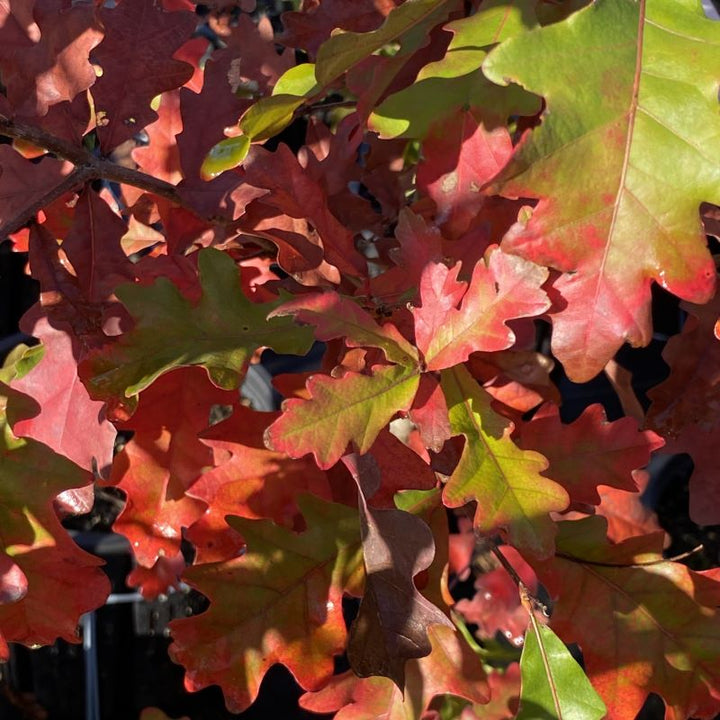Quercus alba (White Oak)
- Low stock - 1 item left
- Inventory on the way
Quercus alba, commonly referred to as white oak, is a large, slow-growing oak which can grow to between 50-80' tall in yard or cultivated conditions, and occasionally up to 100' or more under ideal forest conditions. White oak is naturally found in drier upland areas as well as forest slopes throughout large swathes of eastern North America, which makes it a popular choice for naturalization projects, but also as a yard and park tree. Though Quercus alba requires a very large footprint to grow (wide-spread roots and large canopy), it is sought after as a shade and specimen tree for its tolerance of a wide variety of conditions, including drought and dry, poor soils, as well as shallow, rocky soils or those affected by black walnut.
Like all oaks, white oak produces acorns, which for this species are rather average in appearance, if a bit large at around an inch in length. White oak acorns are ecologically valuable as a food source to a number of species including ground and aquatic fowl like turkeys, wood ducks, ruffed grouse, and mallards, song birds like woodpeckers, nuthatches and blue jays, and a number of mammals including raccoons, bears, deer, and a variety of smaller mammals.
In addition to acorn value, many Quercus species are regarded as important keystone plants for their support of larval butterflies and moths, and Quercus alba is no different, acting as a host to several species of hairstreak butterfly and duskywing moths, among others.


